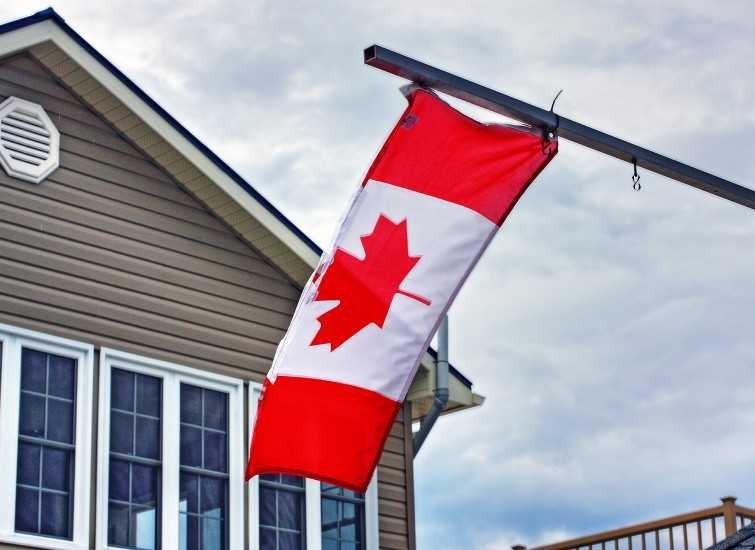Lease Renewal for Canadian Landlords

Advertisement: Click here to learn how to Generate Art From Text
When lease renewal season rolls around, as a landlord, you’re not just ticking a box; you’re reassessing your business’s foothold in the commercial real estate market. It’s a strategic moment that could reshape your revenue and influence your portfolio’s future.
Early planning is the key to staying on top of the game. By using the right approach, you could turn a lease renewal into an opportunity to negotiate better terms that align with your needs. Whether you’re overseeing commercial space in Edmonton, a condo in downtown Toronto, or a family home in Calgary, being well-informed puts you in a stronger position to secure a favourable outcome.
Understanding the Lease Renewal Process
Navigating lease renewals requires a grasp of the step-by-step process and the factors that influence it from a landlord’s perspective. Please note that the rules for lease renewals can vary from one province to another.
Assess Your Current Situation as a Landlord
Evaluate your portfolio’s performance and how each property accommodates your investment goals. Have market conditions changed? Are you still getting the expected returns on your properties, or should you reconsider? Your approach to renewal will be shaped by your objectives.
Commercial Real Estate Market Overview
Keep up with the latest market trends. The commercial Real estate climate can differ greatly across CanadaThis information is critical in leveraging your position during renegotiation. This information is crucial to leveraging your position when renegotiating.
Formulate Your Strategy
Before your lease expires, develop a strategy for lease renewal. It is usually recommended to start discussions six to 12 months in advance. This window will give you time to study the market and consider alternative options, as well as to come to the table in a strong negotiating posture.
Tenants should be proactive in their dealings with you
Tenants should be aware that renewals are not always automatic. If they sense you’re open to exploring other options, it may prompt more favorable terms. Alternative options can give an edge to you in securing a rental that reflects the current market conditions, as well as your needs.
Monitor Market Opportunities
The economy and commercial real estate market are constantly changing. Sometimes favorable renegotiation options arise before the lease expires. Be on the lookout for such opportunities.
Communication with Tenants
Notifying Timely
The timing of lease renewals is important. You’ll need to provide tenants with ample notice before choosing to end their lease. This will not only help to foster a good landlord/tenant relationship, but it will also comply with legal requirements. In most jurisdictions the statutes will dictate the notice period. However, your lease agreement will specify the notice requirements. Consider scheduling reminders far in advance of your lease expiry date to make the renewal process easier.
Understanding the Renewal Terms
Renewal terms are often different from the original lease. This is especially true when it comes down to rental rates and possible alterations. It’s essential to clearly communicate any changes in the renewal terms to your tenants. As a landowner, your goal should be to maintain clarity and avoid any possible misunderstandings. Explain to your tenants the factors that have influenced changes in the rental rate. Be sure that all financial incentives, such as tenant improvements allowances, offered during the initial period are clearly defined, and their continuation or exclusion from the renewal is understood.
Answering Tenant’s Questions and Concerns
Expect tenants to ask questions and have concerns about the renewal of their lease. They may ask about possible rent increases, lease conditions or relocation options depending on the new terms. Be prepared to give informed responses and negotiate terms that both parties will agree on. It’s in your best interest to address these concerns promptly and effectively.
Assessing the condition of a rental property
Inspections
Before initiating any lease renewal discussions, it’s imperative to conduct thorough inspections of the rental property. This practice will ensure that the condition of your rental property is documented, which can protect both you and the tenant. As a landlord in Canada, you have the legal right to enter the rental unit for inspections, provided you give the tenant 24 hours’ written notice. During these inspections, you’re looking to identify issues that go beyond normal wear and tear, such as large holes in walls or stains on the carpet.
An inspection report can be a valuable tool in the process. It’s a detailed written account of the property’s state before the tenant moves in and should be repeated upon their exit. This report is beneficial for both parties as it is evidence of the property’s condition at the start of the tenancy and protects the security deposit from claims related to pre-existing damage.
Repairs and maintenance issues
Maintenance issues must be addressed before lease renewals. It protects your property value and ensures that your tenants are living in a safe and habitable environment. In accordance with the law tenants are responsible for maintaining their rental unit and must repair or reimburse any damage they cause. If the property requires repairs due to normal usage, it’s your responsibility to make those repairs in a timely fashion.
If tenants do not receive maintenance, they can file a complaint with local authorities. Landlord and Tenant BoardsRent increases are prohibited until repairs have been completed. If tenants fail to repair any damage that they cause, then you can file a complaint with the LTB to hold them accountable.
Negotiating Renewal Terms
When it’s time to renew a lease, navigating the intricacies of the terms can be as crucial as the initial agreement. Understanding and negotiating these lease terms effectively will make the difference between a smooth transition into a brand new lease period or unnecessary complications.
Rent Increases
It is crucial to consider how you will handle rent increases when renewing a lease. You’ll need to be abreast of legislative guidelines that dictate the terms of such increases. In many jurisdictions, there’s a cap on how much the rent can be hiked, generally tied to the Consumer Price Index (CPI).
Rent increases should be competitive and in line with the market. Use the prescribed forms to avoid disputes.

Conclusion
Lease renewals require diligence and attention to detail from the landlord’s perspective. By ensuring thorough property inspections and addressing maintenance issues promptly, you’ll set the stage for straightforward negotiations.
Be sure to follow the legal guidelines when discussing rent increases, and be clear on any new lease clauses. To avoid future misunderstandings, ensure that you document everything. Should disputes arise, you’re equipped with the knowledge to seek mediation or adjudication. With professional advice when necessary, you’ll maintain a positive landlord-tenant relationship and secure a lease renewal that benefits both parties.





